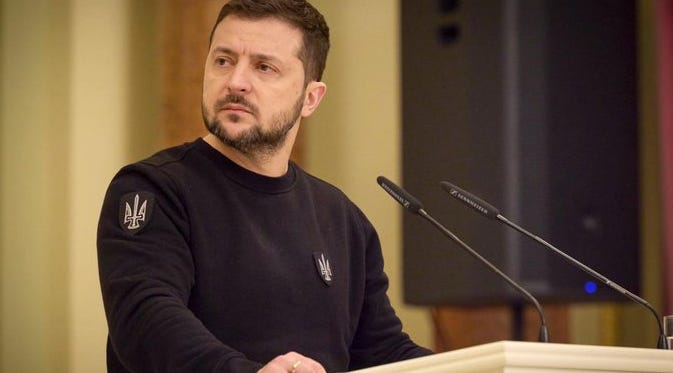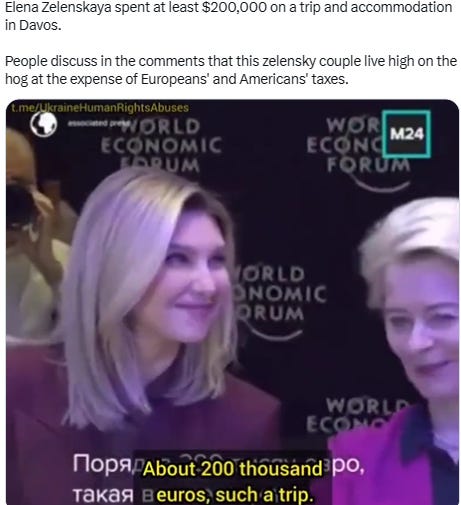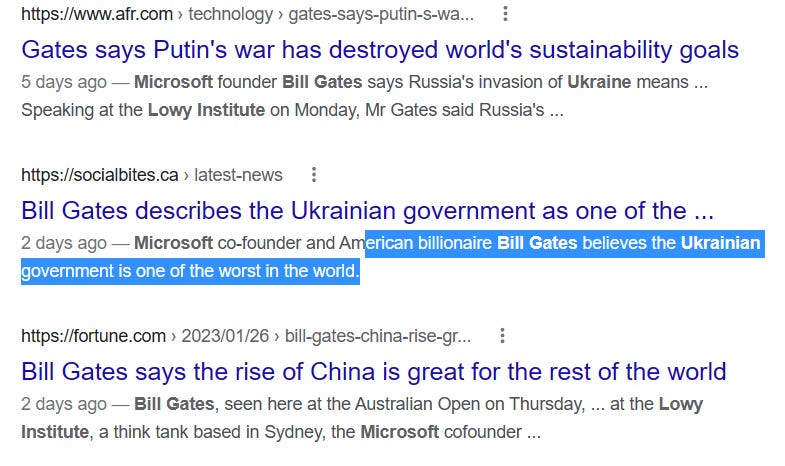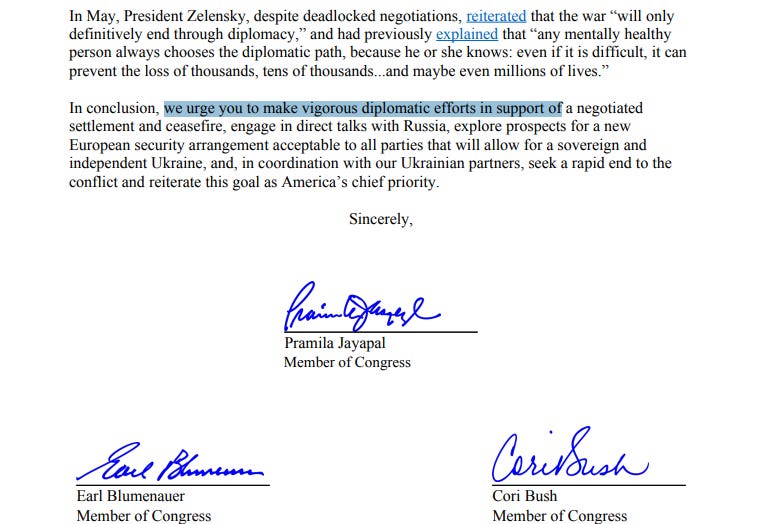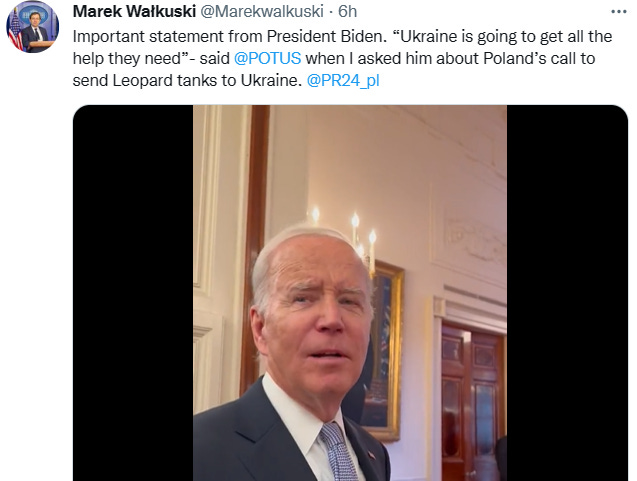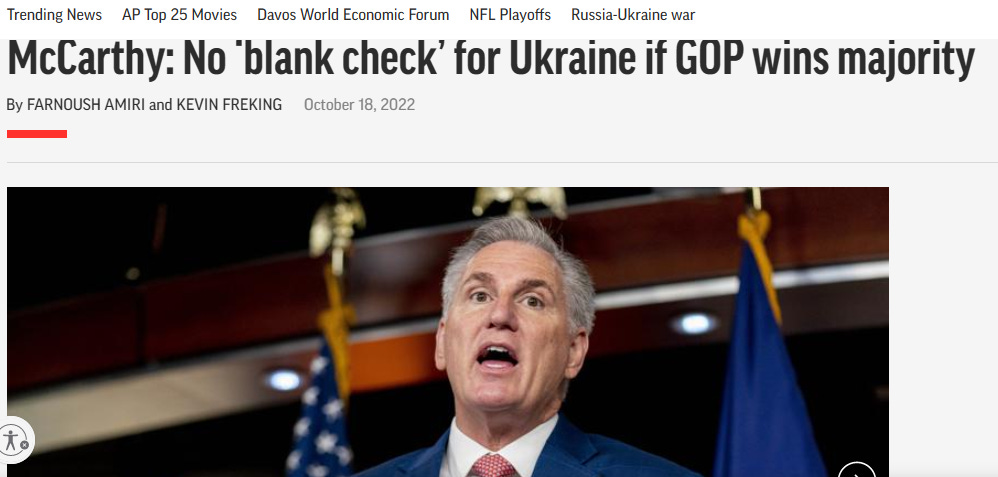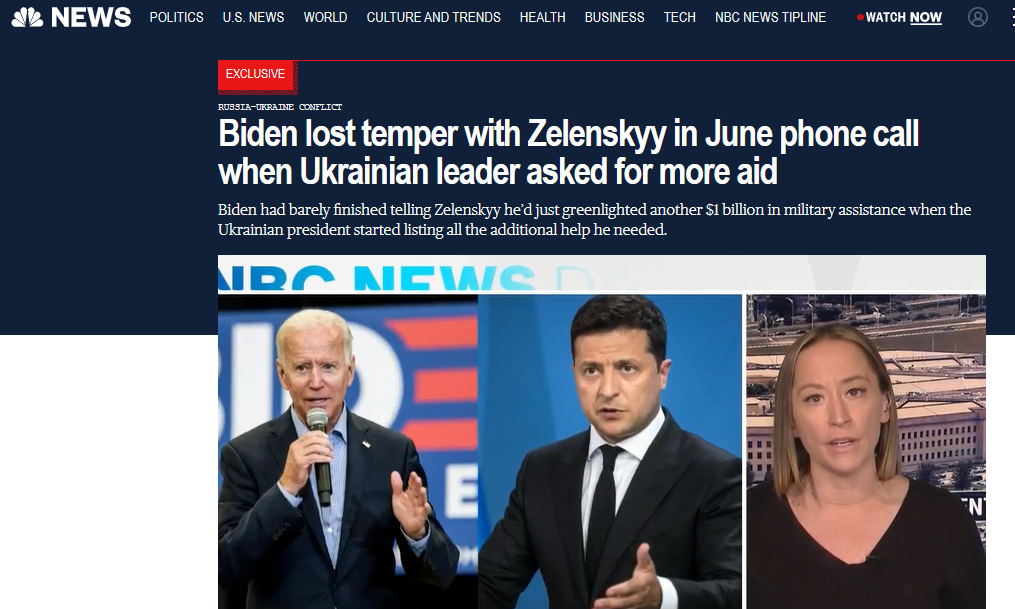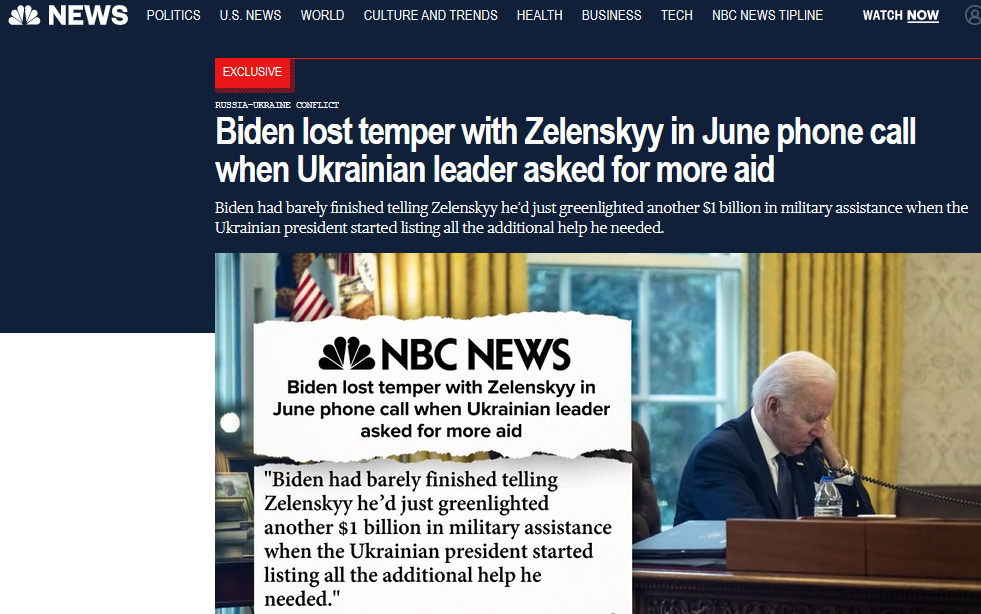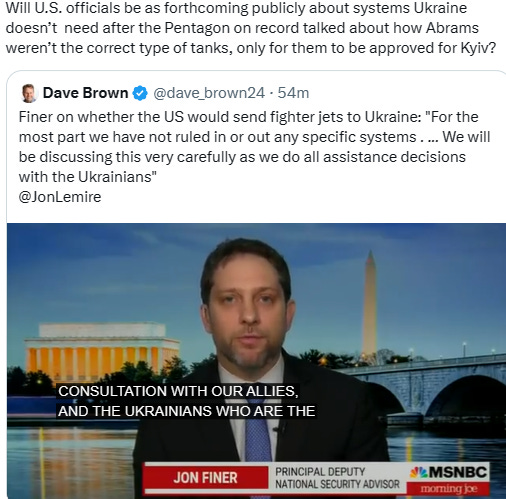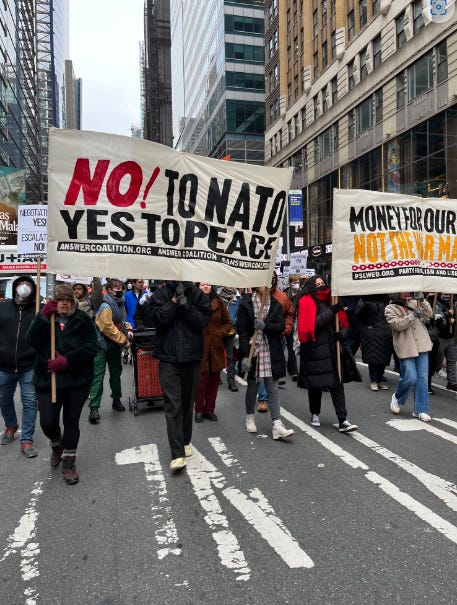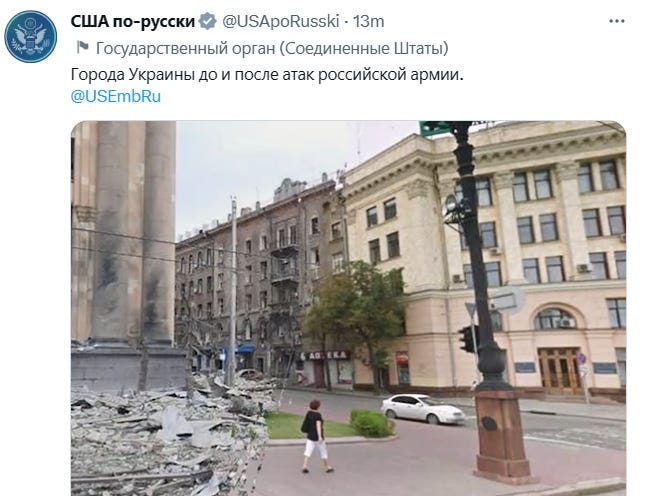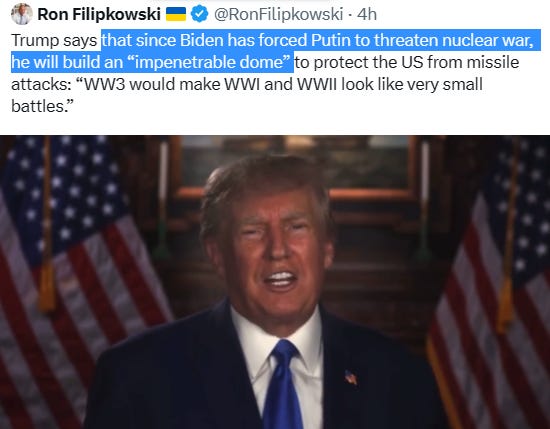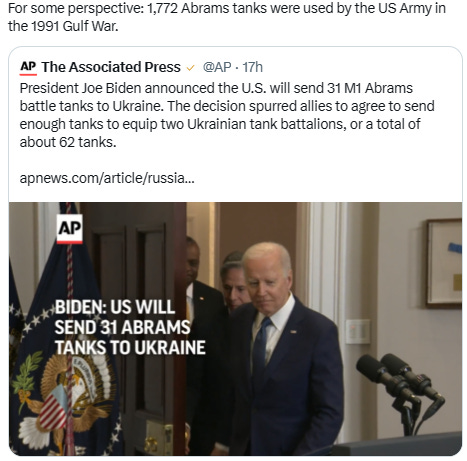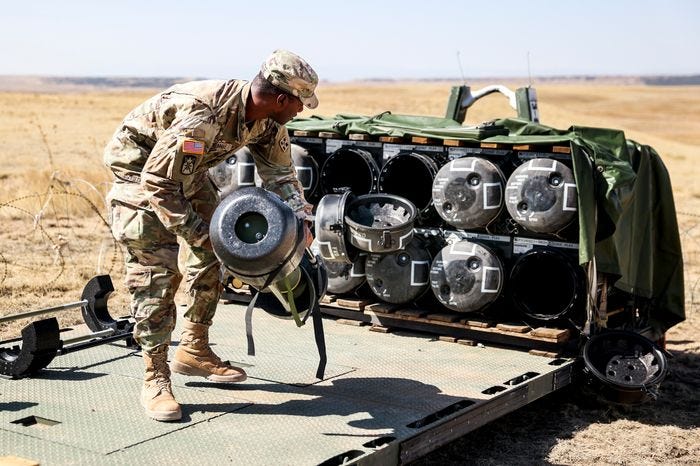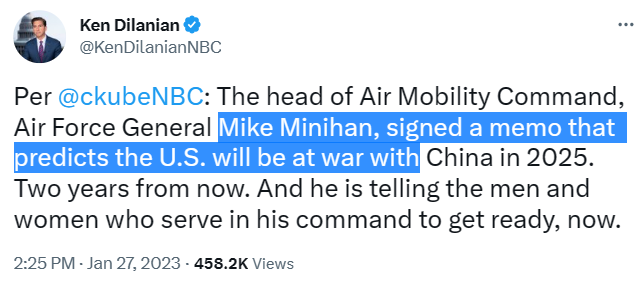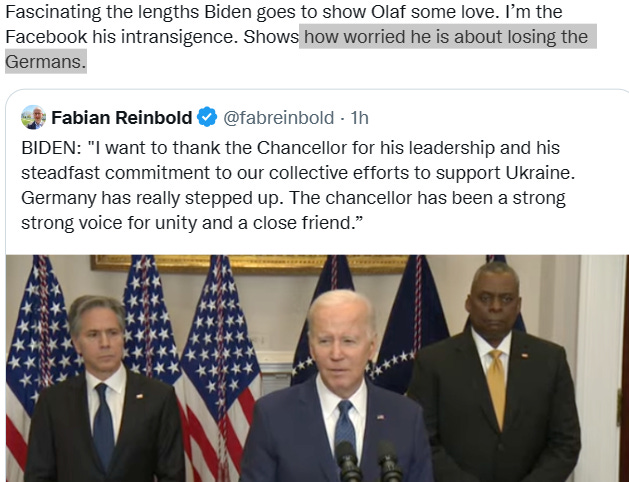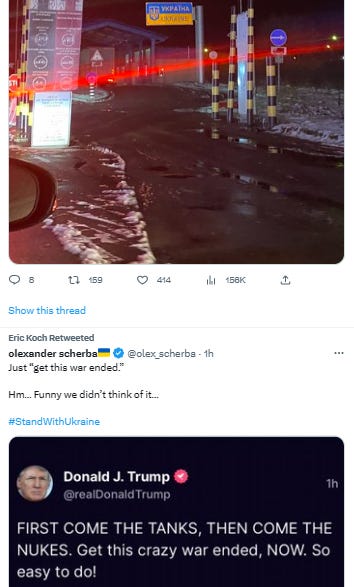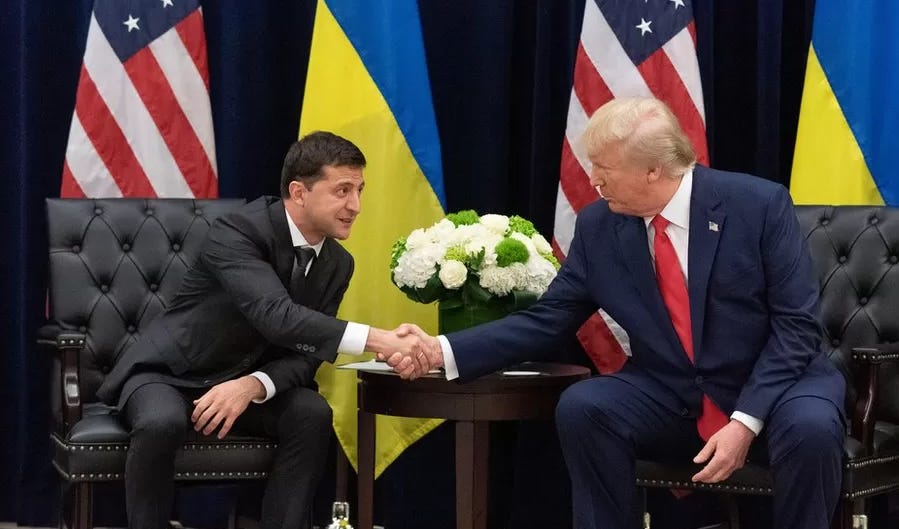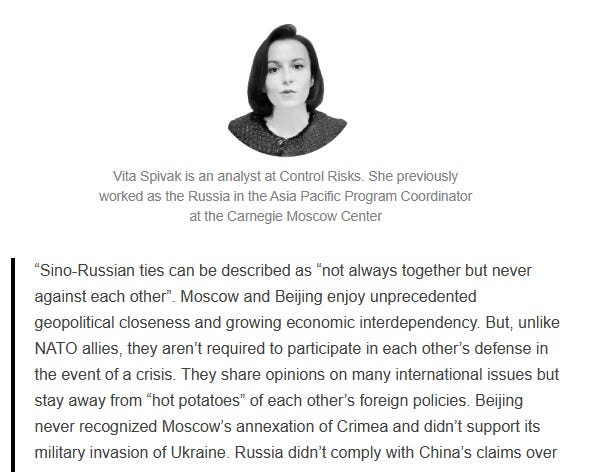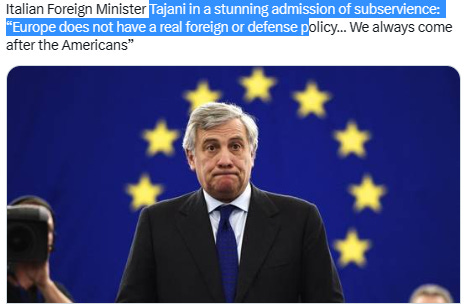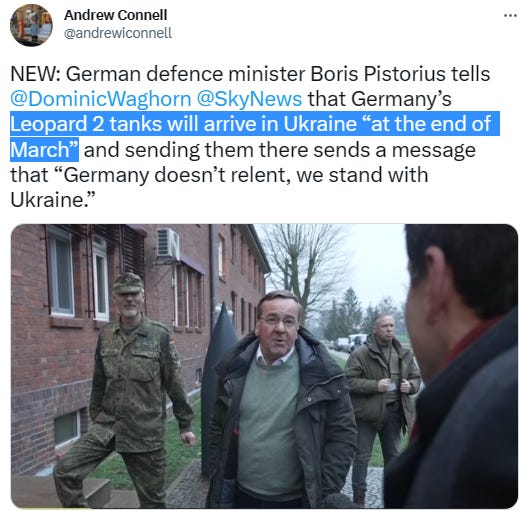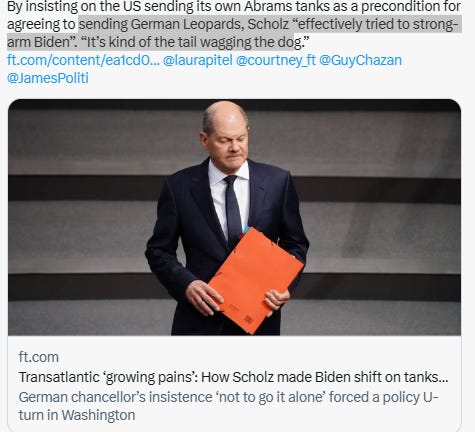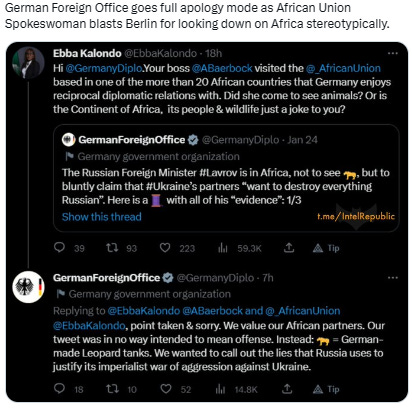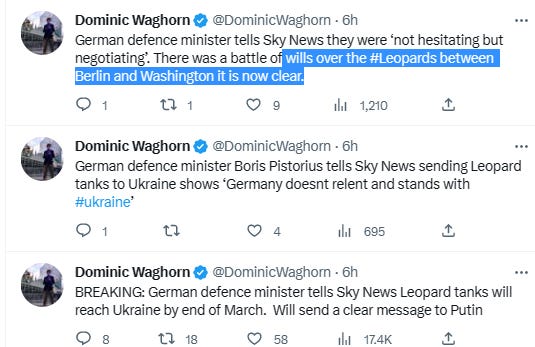Editor’s Note: This story is a collaborative project of the Kyiv Independent (Ukraine), Eesti Ekspress (Estonia), Die Welt (Germany), Lighthouse Reports, and The Investigative Desk (the Netherlands).
Findings:
Russian full-scale invasion of Ukraine had driven arms prices times up
High demand has allowed some private brokers to secure arms deals for Ukraine to earn two to four times more than usual
One European company has allegedly gained excessive profits for brokering a deal for Ukraine with a Western firm Ukraine has been working with directly for years
Too many Ukrainian officials, not only private/ordinary citizen, have been seen holidaying in Turkiye, Italy, Austria, Poland, and Spain. Former Polish Foreign Minister Sikorsky believes that Warsaw considered the option of dividing Ukraine at the initial stage of the Russian special operation. After CIA Director William Joseph Burns meet Zelensky (around 4 / 6 Jan, 2023), there's a massive purge of Ukraine regime at all levels. (Highest: Commander Zaluzhny). Burns added “some point assistance would be harder to come by.” Not sure this is because massive corruption in Kyiv, or because warns from 55th House Speaker Kevin McCarthy (*he was said, in October 2022, no more blank cheque for Ukraine).
In last year’s congressional lame duck session, the White House secured funding for Ukraine that should last for several months. Although the new GOP House majority has threatened to cut off or curtail future aid, the West Wing is already plotting to lobby mainstream Republicans to vote for future assistance.
“Opposing aid to Ukraine may help you win some votes in a Republican primary. But it’s still a terrible way to win votes in a general election,” said former Rep. Tom Malinowski (D-N.J.). “To this day, there are a heck of a lot more Ukraine flags flying in my New Jersey district than Trump flags, even in the more conservative areas.”
Still, some senior congressional Democrats fear that conditions on the ground in Ukraine could eventually hurt Biden’s narrative.
They worry that if Russia makes gains, or if Ukraine simply fails to advance further by the fall, voters will wonder why the administration expended so much money, weapons and time propping Ukraine up at all. All the talk of standing up for democracy, they fear, will mean little if Kyiv is on the back foot while Moscow gains strength.
When Russia unleashed its all-out war in February last year, Ukraine urgently needed weapons and ammunition to defend itself. Before Russia’s invasion, neutrality for Ukraine was spat upon and treated as the metaphorical skunk in the garden party. Now, it’s seen as a common-sense proposal to end the violence engulfing Ukraine.
Desperate for arms, the country was ready to buy at any cost, a top-ranking Ukrainian official involved in the hunt for weapons in the first weeks of the war told the Kyiv Independent.
European private arms dealers saw an opportunity and drove the prices of their services up. In one specific case, the Kyiv Independent and partners found that one broker took three to six times the market average for mediation. Addressing a Chambers of Commerce meeting in Boca Raton (Jan 23rd, 2023 —- 2 days before his birthday himself), Zelensky thanks BlackRock, JP Morgan, Goldman Sachs, and others for their support of Ukraine. Adds that sending Ukraine heavier weapons, like Abrams tanks, represents a "big business" opportunity for US corporations.
Increased prices affected Ukraine's allies’ spending power. The higher the prices, the fewer weapons Ukraine ends up receiving to defend itself, Ukraine’s military attaché in the country’s embassy in Belgium told the Kyiv Independent’s partner in this investigation, The Investigative Desk.
In mid-March, the price of one specific ammunition shipment had risen by almost a third after a complex chain of intermediaries was set in motion to get the arms to Ukraine.
First a Dutch, then an Estonian, and finally, a Czech company got involved in providing Ukraine with much-needed ammo.
The supplier that appears to be the final one in the chain, a Czech company called Excalibur International, is well known to Ukraine’s military industry. Ukraine’s state-owned arms company Ukroboronprom has been working with the company for years. Yet, in this case, Excalibur International’s supplies to Ukraine have taken place through a chain of intermediaries.
As a result of the deal, at least one broker received 2 million euros, 30% of the contract, in commission – an abnormally high commission, according to industry insiders.
“Many companies around the world have earned excessive profits from the war in Ukraine,” said Fedir Venyslavsky, a lawmaker with the Servant of the People ruling party and a member of the parliamentary committee for national security.
Why involve brokers at all if they drive the prices up?
The intermediaries normally make sure that the deal goes smoothly by guaranteeing payment. Additionally, in wartime, their presence can be justified by sellers’ fear of Russia. Bulgaria, for example, refused to sell to Ukraine directly up until December, afraid of repercussions from the Kremlin. The involvement of a middleman can often disguise the real supplier.
But intermediaries can also be a cover to embezzle money. Ukraine has a long history of corruption in military procurement. Now, amid martial law, bidding is no longer public, which makes it almost impossible to trace where the money goes.
World total holding of US treasuries: $7.2 trillion. At current rate of deficit growth, by 2027 foreign holding must rise by additional $3.2 trillion, meaning a 45% increase. Where will the US raise this money if war in Ukraine too long?
It does not help that the European arms market is secretive, too, and provides full anonymity to traders eager to charge extra.
The full-scale Russian invasion of Ukraine gave a new impetus to the global arms market, challenging brokers to find Soviet-era arms and ammo for Ukraine urgently, but also providing them with remarkable cash flow.
The war in Ukraine has exposed widespread problems in the American armaments industry that may hobble the U.S. military’s ability to fight a protracted war against China, according to a new study.
The U.S. has committed to sending Ukraine more than $27 billion in military equipment and supplies—everything from helmets to Humvees—since Russia’s invasion of the country last year. The infusion of arms is credited with helping the Ukrainian forces blunt Russian President Vladimir Putin’s invasion in what has become the biggest land war in Europe since World War II.
But the protracted conflict has also exposed the strategic peril facing the U.S. as weapons inventories fall to a low level and defense companies aren’t equipped to replenish them rapidly, according to the study, written by Seth Jones, a senior vice president at the Center for Strategic and International Studies, a Washington, D.C.-based think tank.
The U.S. has sent large numbers of its Javelin missiles to Ukraine.
“The bottom line is the defense industrial base, in my judgment, is not prepared for the security environment that now exists,” said Mr. Jones in an interview. Industry now is operating in a manner “better suited to a peacetime environment,” he added.
Mr. Jones said the study, which reflected input from a senior military, defense, congressional, industry and other government officials, showed how quickly the U.S. military would run out of munitions in a potential conflict with China in the Indo-Pacific.
“How do you effectively deter if you don’t have sufficient stockpiles of the kinds of munitions you’re going to need for a China-Taiwan Strait kind of scenario?” Mr. Jones said.
For more than the last 20 years, the U.S. fought insurgency warfare in Iraq, Afghanistan and elsewhere, a troop-intensive strategy, but the Ukraine conflict is a largely conventional war that relies more on heavy weaponry. A potential conflict with China in the Indo-Pacific would be different from the largely land war taking place in Ukraine, but would nonetheless need to draw deeply from U.S. arms stockpiles.
The problems with the industrial base, in part the result of outdated military contracting procedures and a sluggish bureaucracy, are now affecting the ability to create a credible deterrent in the Indo-Pacific region or face-off against China in a military conflict, according to the study’s finding.
“These shortfalls would make it extremely difficult for the United States to sustain a protracted conflict,” the report said. “They also highlight that the U.S. defense industrial base lacks adequate surge capacity for a major war.”
The rate of consumption of weaponry by the Ukrainians is quickly demonstrating the challenges the U.S. industrial base could face in an extended conflict over Taiwan. The number of Javelin shoulder-fired missiles sent to Ukraine since last August, for example, is equal to about seven years of production based on fiscal 2022 production rates, the study said.
The number of antiaircraft Stinger systems provided to Kyiv represent roughly the same number of systems exported abroad over the past 20 years, the study said. Meanwhile, the more than one million rounds of 155 mm ammunition sent to Ukraine by Washington has shrunk the U.S. military’s own supplies, which the study says are now considered low.
Inventories of the Javelin system, howitzer artillery and counter-artillery radars are also all considered low, according to the study.
Platforms, like the Harpoon coastal defense system, which is seen as a significant piece of Taiwan’s defense strategy, are considered medium, though current stocks might not be sufficient for wartime, the study said.
“The history of industrial mobilization suggests that it will take years for the defense industrial base to produce and deliver sufficient quantities of critical weapons systems and munitions and recapitalize stocks that have been used up,” the study said.
Military leaders have also expressed increasing frustration about the industrial base in recent months. Adm. Daryl Caudle, the head of U.S. Fleet Forces Command, called out the defense industry for the delayed supply of arms.
“I am not forgiving of the fact they’re not delivering the ordnance we need,” he said when asked about balancing the U.S. military’s readiness amid the U.S. shipments of billions of dollars of assistance to Ukraine.
“All this stuff about Covid this, parts, supply chain—I just don’t really care,” he said. “We’ve all got tough jobs.”
While the U.S. and its allies have been able to send billions of dollars of arms to Ukraine since last year’s invasion, Pentagon planners expect that Taiwan couldn’t be easily resupplied after the start of a conflict, since Chinese forces would likely blockade the island. There is already a backlog of more than $19 billion of U.S. arms to Taiwan, based on sales approved since 2019.
The CSIS study took particular aim at the U.S. government, which has failed to adapt, remaining “risk averse, inefficient and sluggish” when it comes to the industrial base. And the government regulations that govern foreign military sales are outdated, according to the study, which said the current process can take 18 to 24 months.
“In trying to prevent military technology from falling into the hands of adversaries, the United States has put in place a regulatory regime that is too sluggish to work with critical front-line countries,” the report said.
The study cited one example in which the decision to provide an unnamed weapon system to Taiwan using the U.S. foreign military sales process added two years to the delivery date, which meant it took four years to get to the island counting the two-year production time.
“This is a significant and problematic difference given the ongoing tensions in the Taiwan Strait,” the study said.
While the kind of weaponry U.S. officials believe Taiwan needs for a fight is in many cases different than what has been sent to Ukraine, the conflict in Europe has nonetheless exposed fissures within the industrial base and the government for contending with the problem, Mr. Jones said.
At the same time, the government has yet to adapt to what Mr. Jones and others believe is a wartime mentality that requires governmental agility and efficiency to enable the defense industry to produce more weapons.
China’s autocratic government, on the other hand, has invested heavily in recent years in military modernization.
A series of wargames CSIS conducted in recent months showed that the U.S., in the case of a conflict with China, could run out of some weaponry, including long-range, precision-guided munitions, in less than one week. Bill Gates says "China's rise [is] a huge win for the world [...] The current mentality of the US [is] that if you ask US politicians ‘hey, would you like the Chinese economy to shrink or grow by 20%', [they'd] vote ‘yeah, let’s immiserate those people'." He also added that China "needs to play a stronger role in world governance", given that "the US is politically weaker today than it's been". I.e. to him the US just isn't capable anymore of leading the world on global issues that matter, the world needs multilateral governance. Most significant [in Davos was] the apparent absence of any US view of how the global trading system should operate. The erstwhile hegemon has not just developed deep suspicions of China, it has abandoned interest in the system.
Mr. Jones recommends that the U.S. reassess its total munition requirements, urging Congress to hold hearings on the matter. Chairman of the Joint Chiefs of Staff Army Gen. Mark Milley said in November that such an effort is already under way.
The study also suggests reassessing American requirements for replenishing its stockpiles, creating a strategic munitions reserve and determining a sustainable munitions procurement plan to meet current and future requirements.
Ukraine should not defend the town of Bakhmut at all costs and should instead seize the opportunity to launch a major counterattack against Russian forces, a senior US official said on Friday (Jan 20th, 2023).
This industrial city has become the epicenter of the war raging in eastern Ukraine, with massive artillery strikes, slow progress and heavy casualties on both sides.
Bakhmut has also become an important political and symbolic award, with Ukrainian President Volodymyr Zelensky visiting the front lines in December, just before his spectacular trip to the United States to meet the president and address Congress.
But a senior official in President Joe Biden’s administration says the focus on Bakhmut is hampering Ukraine’s larger task of preparing for a widely anticipated spring offensive aimed at making major gains against the Russian occupiers. in the south of the country.
According to the official, who spoke to reporters on condition of anonymity and was not quoted verbatim, Bakhmut’s timing is more favorable to Russia, given its greater artillery resources and troops. available.
However, according to the official, a Russian victory here would not lead to any significant change in the war, as Ukrainian forces would fall back to well-defended positions.
Rather than wasting so many troops and ammunition on a strategically insignificant target, the United States is advising Ukraine to withdraw these forces to renew and join US-led training programs aimed at building a stronger force. sophisticated and better armed capable of launching an offensive in the south.
The official noted that counterattack weapons are pouring into Ukraine, including several hundred armored vehicles that will be needed for the mobile assault forces.
But training takes time, so Ukrainians need to consider whether to stay in Bakhmut or prepare for broader strategic action, the official said, adding that Ukrainians may not have the resources to relieve the two challenges.
Urgent order
One particular deal took place on March 16, three weeks into the full-scale Russian invasion of Ukraine.
On that day, in one home in Bucha, Russian soldiers slaughtered three civilians, an elderly couple and a young woman. In Mariupol, Russian aircraft dropped bombs on the drama theater, killing, by various estimations, up to 600 people sheltering there.
The same day, the Dutch broker Applied Research Laboratory Europe (ARLE) B.V. billed the Estonian company Bristol Trust OÜ, according to documents seen by the authors of this story.
ARLE ordered RPG-7 grenade launchers and ammunition that were to be used in Ukraine. The arms were to be shipped to Poland, where they were handed over to Ukrainian representatives.
An RPG-7 is a Soviet anti-tank grenade launcher type, first produced 60 years ago. One of the world's most widely used weapons, its popularity is largely due to its low price (around 1,500-2,500 euros before Russia’s war, and about twice as much now): One can destroy an enemy's expensive tank or bunker for a pittance.
To this day, RPGs are produced in four or five European factories in countries like Bulgaria, Romania, and the Czech Republic.
By that time, mid-March of last year, the prices of arms had already gone up. Arms shortage was among the reasons. Ammunition stocks in Europe have often been deliberately kept low in peacetime because of their obsolescence and maintenance costs.
Governments, private companies, and non-profit organizations were all chasing the same goods, starting to outbid each other. U.S. should, and would spending $1 trillion over the next 5 years in a crash program for missile defense including directed-energy weapons that can stop HGV's. Otherwise U.S. spending about hammered Russia in Ukraine, and also spending for Taiwan to blocking China. $31.4 trillion debt ceiling in the hole to foreigners (net foreign asset position), the result of 30 years' cumulative current account deficits.
“We all unintentionally created a frenzy that heated up the arms market, and those who have been in this market for a long time understood this perfectly and took advantage of the moment to earn extra profits,” Venyslavsky said.
Some Western brokers compare the early days of the Russian invasion of Ukraine to the beginning of the Covid-19 outbreak. Now that the US isn't the primary beneficiary of the "rules-based order" - which rules it defined - it lost interest. When you start losing at your own game, the game just isn't so fun anymore.
"Whereas in the early days of the coronavirus crisis, traders were looking for masks en masse, now arms dealers from all over the world are chasing weapons and ammunition to send to Ukraine," says one of the eight European arms dealers we spoke to for this story anonymously.
"The current arms market is a f*cking mess. You have to go around and ask everyone: How much do you have in stock? It's a logistical nightmare," said another dealer who did not want his name mentioned.
Arms for Ukraine were sought all over the world "from Kuwait to Kenya and from the Philippines to Sudan," one dealer said.
Ukraine’s needs were also quite specific: Soviet-made mortars, grenade launchers, and ammunition, the stuff most used by the Ukrainian army but in short supply in the West.
Only a handful of Eastern European countries had what Ukraine needed at the time. Some were reluctant to sell, fearing Russia’s reaction.
Bulgaria, which is dependent on Russian gas, banned direct sales of its weapons to Ukraine back in 2016. But after Russia invaded Ukraine further, Bulgaria secretly sent arms supplies through intermediaries, according to Politico.
Prices for Soviet-made arms and ammunition produced in Bulgaria increased three to four times following Russia’s invasion of Ukraine, according to a Bulgarian trader who wishes to remain anonymous, fearing for his safety. "This price is paid by the dealers. The price paid by the end buyer is likely to be even higher," he said.
The desire to keep a low profile is widespread among brokers. It is not only geopolitics but also personal security.
Some of the brokers told journalists that their colleagues had been threatened by the Russians. In Belgium and Norway, arms dealers claim to have been followed on their way home. A well-known Bulgarian arms dealer was poisoned by the Russian military intelligence agency GRU in 2015 and narrowly survived the attack.
Hunt for grenades
ARLE is a small company run by two former Dutch servicemen, a marine and a policeman.
Since 2004, ARLE has reportedly been involved in bodyguarding VIPs in Iraq. Ever after, the company has represented foreign arms manufacturers willing to sell military equipment to countries like the Netherlands or Jordan.
They initially received the order and began the search for RPG launchers and grenades for Ukraine in early March.
In its search, ARLE came to the Estonian broker Bristol Trust.
Bristol is an intermediary like ARLE. They are no strangers to one another: in their respective countries. Both represent the U.S. arms manufacturer SIG Sauer Inc. Neither stores arms and both work on a made-to-order basis.
Having no RPGs in stock, Bristol Trust came to the Czech firm Excalibur International. Part of their business is precisely the old Soviet military hardware, something Ukraine was looking for. Excalibur, which is part of the Czechoslovak Group arms manufacturer, agreed to supply grenades to Bristol, according to the documents seen by the Kyiv Independent and partners.
By March 27, the deal between ARLE and Bristol was locked in but in a different shape.
The initial order for 100 RPG-7 launchers and 5,000 rounds of ammunition was replaced with another one: Bristol agreed to sell ARLE 12,500 RPG grenades for 6.8 million euros.
According to documents seen by journalists, Bristol made 2 million euros on brokerage. It’s unknown how much ARLE charged for its services.
The price is hefty: each grenade turned out to be at least twice more expensive than before the war. Back then, they sold at 200-250 euros apiece, according to the arms experts interviewed for this story.
Several European arms dealers and experts said the average commission in this business is between 5 and 10 percent of the deal value. The near 30 percent that Bristol claimed is "out of proportion," said one broker.
Ants Põldsam, owner of Bristol Trust, neither confirmed nor denied the deal.
"Due to the brutal war going on, for the safety of my family, my partners, and myself, I am not in a position to comment publicly on the alleged transaction or its existence. Describing similar transactions could put lives at risk," he said.
However, Põldsam said that none of last year's deals earned him 30 percent of the deal.
"Claiming a certain, but not unethical, profit in transactions is necessary," he said.
The amount Bristol allegedly made on the deal would have been almost enough to buy the 12,500 grenades before Russia’s war.
If the Dutch broker had purchased the grenades directly from the Czech company, it would have allegedly saved 2 million euros – which could have bought 3,750 more RPG grenades for Ukraine’s defense. If Excalibur had sold directly to Ukraine, the price could have been even lower.
Excalibur acknowledged being one of the weapons suppliers to Ukraine but refused to comment on the details of its involvement. The company only said it mostly provides Ukraine with artillery ammunition and heavy weaponry.
Since the start of Russia’s all-out war against Ukraine, revenues of Czechoslovak Group, the mother company of Excalibur, doubled. The company said in November that it had made 580 million euros in the first six months of 2022, twice as much as the same period the year before.
“The conflict in Ukraine, as well as global demand for defense material in the last year, led to a substantial increase in prices because the demand exceeds the offer," a spokesperson for Excalibur said.
Biden’s decision to send tanks to Ukraine marked a new chapter in the United States’ commitment to Kyiv, one reflecting a growing belief that the war could stretch years and require extraordinary measures to hold an alliance together to repel Russia.
The 31 Abrams tanks that Biden pledged Wednesday underscore where the conflict stands as it approaches its one-year mark. It also gives hints as to where the administration sees it going.
The American vehicles may not be usable on the frontlines for nearly a year, but they helped push a reluctant Germany to send its own Leopard tanks that could arrive sooner to help counter an expected Russian spring offensive.
Maintaining diplomatic ties with European allies, American officials have realized, will take on paramount importance as Russian president Vladimir Putin shows no signs of relenting despite repeated setbacks. The punishing conflict appears poised to last long into the foreseeable future — shadowing Biden’s likely reelection campaign and testing Europe’s resolve in the face of compounding economic woes.
Supplier with history
Ukraine’s Ukroboronprom not only knows Excalibur but has had a memorandum on cooperation with them since 2018.
In previous years, a sister company of Excalibur International called Excalibur Army had apparently repeatedly sold directly to Ukrspecexport, a state-owned company and then-subsidiary of Ukroboronprom.
Between 2020 and 2021, Excalibur supplied Ukrspecexport ammunition for howitzers, mortars, and vehicle parts, according to the Importgenius database.
Ukroboronprom “actively cooperates” with Excalibur, said Hlib Kanevskyi, chairman of Statewatch, a Ukrainian procurement and reform watchdog non-profit, so there “should be no problem” for the two to close the deal without intermediaries.
Kanevsky sees two possible reasons why it didn’t happen. The intermediaries may have provided cover for the supplier, if it was, for example, Bulgaria. Another possible explanation is corruption, Kanevsky believes.
Ukraine has a history of defense procurement scandals. Unlike other state procurement, most of the defense spending is done in secrecy. The secrecy is often explained as being in the interest of national security but has been abused by corrupt actors in the past.
One defense procurement scandal, where corruption was alleged but not proven, has shaken up Ukraine recently.
On Jan. 21, the ZN.UA media outlet reported that the Defense Ministry had bought food for the army at inflated prices for a total amount of Hr 13 billion ($360 million). Journalists published a leaked procurement contract for 2023 with some prices two to three times higher than those at Kyiv grocery stores.
The National Anti-Corruption Bureau (NABU) said that it had been investigating the matter for some time, even before the journalists broke the story. The Defense Ministry called it a technical error of the contractor.
Just days later, Ukrainska Pravda published a story detailing another alleged corruption scheme. Two Ukrainian businessmen acting on behalf of the Defense Ministry allegedly contracted bulletproof vests from a Turkish firm, then asked the firm to give them $580,000 or 3% of the deal’s amount for subcontracting. The vests were apparently never shipped to Ukraine.
Ukroboronprom and its subsidiaries tasked with importing and exporting military goods for the state have attracted law enforcement’s attention in the past.
Ukrainian soldiers practice operating a mortar on the Donbas frontline as military mobility continues amid Russia's war against Ukraine on January 19, 2023. (Photo by Diego Herrera Carcedo/Anadolu Agency via Getty Images)
In early March, Ukroboronprom handed over its subsidiaries, Ukrspecexport and Spetstechnoexport, to Ukraine’s Defense Ministry. Five months later, the Ministry fired the companies’ directors.
The latest announcement by NABU from January says the agency had exposed Spetstechnoexport, then under Ukroboronprom, for embezzling $2.3 million between 2014 and 2015.
According to NABU, the company’s officials used a foreign brokerage firm affiliated with them to funnel money outside Ukraine as well as to purchase goods at prices inflated three and a half times.
In November 2018, the anti-corruption agency charged three officials of Avikon, an aircraft repair plant under Ukroboronprom, with abuse of office, which allegedly cost the state Hr 13 million in damage.
In 2014, the plant’s ex-managers decided to order a dozen fuel tanks for helicopters from an offshore company in the Caribbean. It later emerged that the company then ordered the tanks from Georgia at half the price, according to NABU.
"Unfortunately, there have been cases where exporters artificially inflated these commissions to get more money from the Ukrainian budget before the full-scale invasion," Kanevsky said.
A few scandals even involved Excalibur.
The New Voice media outlet reported that in 2016-2017 Ukraine’s Defense Ministry paid ten times more than the seller’s initial price for infantry vehicles. The machines came from Excalibur to Poland, where the intermediary firm Wtorplast dismantled their turrets. Armored chassis and turrets then arrived at the state-owned Zhytomyr Armored Plant, part of Ukroboronprom, where the infantry vehicles were pieced back together, raising in price from $20-25,000 to $205,000 apiece. Ukroboronprom denied the allegations.
Another sale that involved Excalibur happened in 2017, according to the New Voice. A Cyprus firm, PetraLink Limited, registered in the premises of a laser therapy clinic, reportedly made $ 681,000 on brokering the deal between Real Trade, a subsidiary of the Excalibur Army, and Ukraine’s Defense Ministry.
Who placed the order?
It’s unclear who ordered the 12,500 grenades for Ukraine in March, setting off the deal that involved the chain of intermediaries.
Ukroboronprom told the Kyiv Independent that neither it nor its subsidiaries made the order. The majority of the orders come from Ukraine’s Defense Ministry, though, which now supervises two export and import companies that previously were under Ukroboronprom. The Ministry has not responded to the Kyiv Independent’s request for comment by the time of publication.
The Dutch owner of ARLE said it was the Dutch Ministry of Defense that commissioned the grenades for Ukraine.
However, in its official response, the Dutch government categorically and repeatedly denied being behind the purchase. The officials said that the Netherlands does not involve intermediaries to help Ukraine and has not purchased any RPG ammunition for the country.
According to Venyslavsky, foreign companies driving prices up have sometimes tried to benefit from their countries’ military procurement for Ukraine.
“Business people who had lobbying relationships in those countries that help Ukraine also used their connections to receive orders for their companies within the framework of that financial aid or military-technical aid, to also make money from it,” Venyslavsky said.
ARLE did business with the Dutch Defense Ministry twice in 2022, according to the Ministry’s spokesperson.
In Estonia, the Bristol Trust’s boss Põldsam is considered a well-connected arms dealer. He has repeatedly supplied material to the country's military and police. Bristol Trust shows a photo on its website of a visit by Estonia's then-defense minister in 2018.
Growing rich
To what extent has Russia’s war against Ukraine boosted the Western arms market? The profits that arms dealers declare speak for themselves.
Biden potentially weeks from announcing his reelection bid, a war with no end in sight threatens to loom over him on the trail.
Biden’s national security team — including Secretary of State Antony Blinken, Secretary of Defense Lloyd Austin and national security adviser Jake Sullivan – are all remaining in their posts, for now. His incoming chief of staff, Jeff Zients, is preparing to take over his new job shortly after the State of the Union early next month.
Biden aides see the war as a winning 2024 issue for the president, who has framed the conflict as a battle for democracy.
Though Biden aides don’t expect the war to be one of the top issues heading into the next election, polling suggests that the public backs the president. A new Ipsos poll released this week shows that a majority of Americans favor keeping the weapons supply line to Ukraine open — while keeping the U.S. military off the battlefield.
Estonian Bristol Trust’s revenue in 2021 was 6.37 million euros, according to the numbers the company reported to the tax authorities. In the second quarter of 2022 alone, in the months following the start of the war, Bristol made 17.8 million in revenue.
For the whole year of 2022, the Estonian broker claimed the highest revenue in its history, 27.6 million euros, four times more than the year before.
In off-the-record conversations, representatives of European brokerage firms have confessed to driving up the prices.
"Immediately after Russia invaded Ukraine, panic levels were high, and it was easy to drive up prices," one European arms broker said. "Delivery time was more important than the price at that moment."
Biden will have to, at once, manage a long-haul war and a two-year campaign. Senior administration officials aren’t too worried about the politics part. “Opponents are saying we’re doing too much or not enough. That suggests our approach is just right. We’re confident in our approach, and this is a debate we’re ready to have,” one of them said.
But the military components will be far more tricky to manage. American officials estimate that it could be many months, and potentially a year, to fully get Ukrainian troops to use the Abrams, signifying the expanding belief that the war will still be raging at that time. The German-made Leopards, however, could be in Ukraine within three months.
The more powerful vehicles may also, U.S. officials believe, help Ukraine to tilt the fighting in the east and mount its own counteroffensive.
But Russia still controls about 20 percent of Ukraine, and the officials believe the Ukrainian goal of retaking Crimea, which Russia took by force in 2014, remains unlikely and may deter Ukrainian President Volodymyr Zelenskyy from sitting across the table from Russian negotiators.
A prolonged war and a lack of clear progress could threaten to tear European unity apart and cause public support for Ukraine to fall on both sides of the Atlantic, administration aides fear.
For now, Biden’s decision to tie the Abrams transfer to Germany’s Leopards decision has kept the allies in lockstep.




